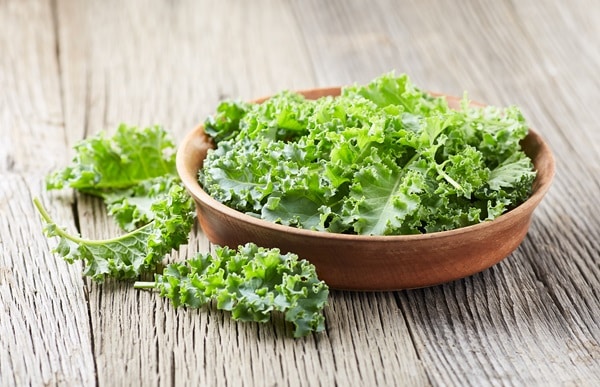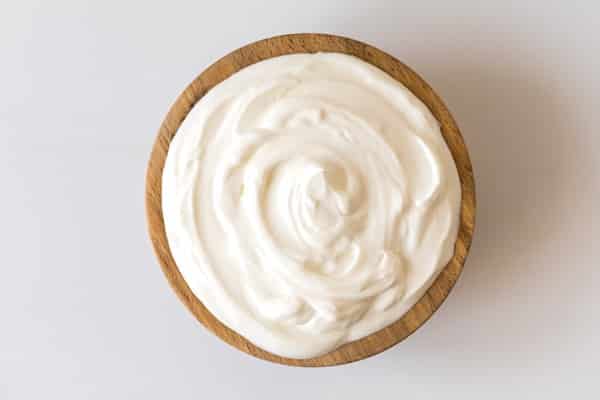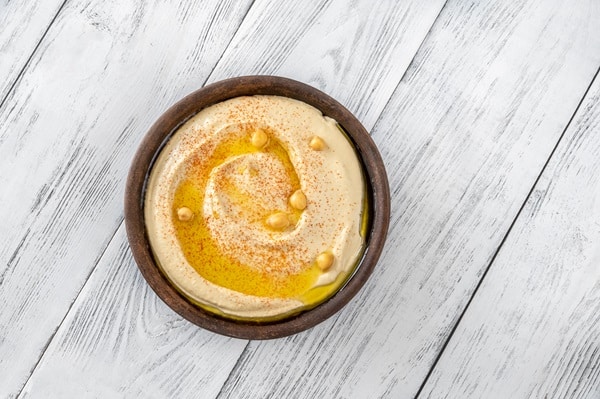In the quest for a healthier lifestyle, the contents of your refrigerator play a pivotal role. Often overlooked, this domestic appliance is more than just a cold storage unit; it’s a treasure trove of nutrients waiting to be harnessed. By carefully selecting what occupies the shelves in your fridge, you can significantly influence your daily eating habits and overall well-being. This guide highlights eight essential foods that deserve a permanent spot in your refrigerator, each offering unique health benefits and versatility in your culinary adventures.
Contents
- 1 Leafy Greens: A Nutrient Powerhouse
- 2 Greek Yogurt: Creamy, Protein-Rich Delight
- 3 Berries: Bursting With Flavor And Nutrients
- 4 Bell Peppers: A Colorful Crunch Of Nutrition
- 5 Hummus: A Blend Of Flavor And Nourishment
- 6 Eggs: Essential, Versatile Protein
- 7 Cottage Cheese: A Versatile Protein Source
- 8 Celery: A Crunchy, Low-Calorie Snack
- 9 Make Your Fridge A Foundation Of Wellness
Leafy Greens: A Nutrient Powerhouse

Leafy greens, such as spinach, kale, and arugula, are essential staples for any health-conscious individual. These verdant vegetables are not only low in calories but are also brimming with vitamins A, C, and K, along with essential minerals like iron and calcium. Their high fiber content aids in digestion and contributes to a feeling of fullness, which can be beneficial for weight management. Moreover, the antioxidants found in leafy greens help combat free radicals, reducing the risk of chronic diseases.
Storing these greens correctly is crucial to preserving their nutritional value. It’s advisable to keep them in the crisper drawer of your fridge, ideally in airtight containers or specially designed produce bags. This not only extends their shelf life but also maintains their crisp texture. Consider tossing them into smoothies, salads, or stir-fries for a quick and nutritious addition to your meals. Their versatility makes them an invaluable component of your daily diet.
Greek Yogurt: Creamy, Protein-Rich Delight

Greek yogurt stands out in the dairy aisle due to its rich texture and impressive nutritional profile. It’s an excellent source of protein, which is vital for muscle repair and growth, and it’s also packed with probiotics that aid in maintaining a healthy gut flora. Unlike regular yogurt, Greek yogurt undergoes an additional straining process, which thickens its texture and concentrates its protein content.
When incorporating Greek yogurt into your diet, it’s important to choose the right type. Opt for plain, unsweetened varieties to avoid the extra sugars often found in flavored yogurts. Greek yogurt’s versatility extends beyond breakfast bowls; it can be used as a base for smoothies, as a healthier alternative to sour cream, or even in baking. Its creamy texture and tangy flavor can enhance a wide range of dishes, making it a must-have in your fridge.
Berries: Bursting With Flavor And Nutrients

Berries, including blueberries, strawberries, and raspberries, are celebrated for their high antioxidant content. These small but mighty fruits are rich in vitamins, particularly vitamin C, which is crucial for immune function and skin health. Antioxidants in berries help neutralize free radicals, potentially reducing the risk of certain diseases. Additionally, their high fiber content supports digestive health and can aid in blood sugar regulation.
Choosing between fresh and frozen berries depends on availability and personal preference. Frozen berries are often picked at peak ripeness and flash-frozen, preserving their nutritional value. They are a convenient option for smoothies or baking. Fresh berries, on the other hand, are perfect for snacking or as a topping for oatmeal and yogurt. Incorporating a variety of berries into your diet can add a burst of flavor and a wealth of health benefits.
Bell Peppers: A Colorful Crunch Of Nutrition

Bell peppers, in their vibrant array of colors, are not only visually appealing but also a powerhouse of nutrition. Each color, from the deep reds to the sunny yellows, offers a unique profile of vitamins and antioxidants. These crunchy vegetables are exceptionally high in vitamins A and C, which are essential for immune function and skin health. Vitamin C, in particular, is a powerful antioxidant that helps combat free radicals, potentially reducing the risk of chronic diseases.
The nutritional benefits of bell peppers extend beyond their vitamin content. They are low in calories yet high in fiber, making them an excellent addition to a weight management diet. When it comes to incorporating bell peppers into your meals, the possibilities are endless. They can be enjoyed raw as a crunchy snack, sliced into salads, or cooked into stir-fries and fajitas. Their sweet, slightly tangy flavor enhances a variety of dishes, making them a versatile and essential component of your fridge’s inventory.
Hummus: A Blend Of Flavor And Nourishment

Hummus, a creamy spread made primarily from chickpeas, tahini, olive oil, and lemon juice, is a delightful addition to any refrigerator. It’s not only rich in flavor but also packed with nutrients like fiber, protein, and healthy fats. These components make hummus an excellent choice for supporting digestive health and providing sustained energy. Additionally, the presence of chickpeas in hummus contributes to its high protein content, making it a favorite among vegetarians and vegans for its plant-based protein.
The versatility of hummus is one of its most appealing attributes. It can be used as a spread on sandwiches or wraps, a dip for vegetables and crackers, or even as a base for savory sauces in various recipes. When choosing hummus, consider opting for homemade versions or store-bought ones with minimal additives to maximize health benefits. Experimenting with different flavors, such as roasted red pepper or garlic, can add an exciting twist to your meals, making hummus a must-have in your healthy fridge lineup.
Eggs: Essential, Versatile Protein

Eggs are a staple in many refrigerators due to their versatility and high nutritional value. They are an excellent source of high-quality protein, essential amino acids, and a variety of vitamins and minerals, including vitamin D, B vitamins, and choline. These nutrients are crucial for various bodily functions, including muscle building, brain health, and maintaining energy levels. The debate over eggs and cholesterol has evolved, with current research suggesting that moderate egg consumption is safe for most individuals, making them a valuable component of a balanced diet.
Eggs can be prepared in numerous ways, from boiled and poached to scrambled and fried, offering a range of options for any meal of the day. They are a quick and easy option for a nutritious breakfast, a protein-packed addition to salads, or a key ingredient in baking. Storing eggs properly and checking for freshness ensures their quality and safety. The versatility and nutritional benefits of eggs make them an indispensable item in your fridge.
Cottage Cheese: A Versatile Protein Source

Cottage cheese is a fresh cheese curd product with a mild flavor and a rich source of protein, making it an excellent addition to a healthy fridge. It’s particularly high in casein, a slow-digesting protein that helps in muscle repair and growth, making it a favorite among athletes and fitness enthusiasts. Cottage cheese is also a good source of calcium, essential for bone health, and contains several B vitamins, which are essential for energy production.
The versatility of cottage cheese is often underrated. It can be enjoyed on its own, mixed with fruits and nuts for a quick snack, or incorporated into savory dishes like lasagnas and casseroles as a healthier alternative to heavier cheeses. For those looking to manage their weight or support muscle growth, cottage cheese is an ideal choice due to its high protein and low fat content. Its creamy texture and mild taste make it a flexible and nutritious ingredient that enhances a variety of meals.
Celery: A Crunchy, Low-Calorie Snack

Celery is a crisp, refreshing vegetable often found in the crisp drawer of many refrigerators. It’s known for its low-calorie content, making it a popular choice for weight-conscious diets. But celery’s benefits go beyond its low-calorie count; it’s a good source of fiber, which aids in digestion and promotes a feeling of fullness. Additionally, celery contains vitamins A, K, and C, as well as some essential minerals like potassium, which supports heart health and blood pressure regulation.
Celery’s versatility in the kitchen is noteworthy. It can be enjoyed raw as a crunchy snack, often paired with hummus or peanut butter, or used as a flavor-enhancing ingredient in soups, stews, and salads. Its distinct flavor also makes it a key component in mirepoix, a classic flavor base for various dishes. Storing celery properly in the fridge, wrapped in foil or a cloth bag, helps maintain its crispness and freshness. Whether used as a healthy snack or a culinary ingredient, celery offers both nutritional benefits and culinary versatility, making it a valuable addition to your fridge.
Make Your Fridge A Foundation Of Wellness
With these eight nutritious foods, transforming your fridge into a hub of health and wellness is within reach. Each item not only brings its unique set of health benefits but also adds flavor and variety to your meals. Remember, the journey to a healthier lifestyle begins with what you stock in your fridge. So, take this knowledge, head to the grocery store, and start making choices that align with your health goals. Your body and taste buds will thank you!


